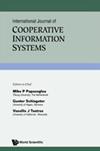土著和解:为什么,做什么,如何做
IF 0.5
4区 计算机科学
Q4 COMPUTER SCIENCE, INFORMATION SYSTEMS
International Journal of Cooperative Information Systems
Pub Date : 2020-02-28
DOI:10.5204/ijcis.v12i2.1276
引用次数: 1
摘要
尽管许多学术研究人员在他们的工作中引入了和解,但他们没有从土著人的角度解释和解的含义。我们需要如何在日常练习中理解和练习它?为什么我们所有人,无论是土著人还是非土著人,都要进行基于土地的反种族主义学习——作为一种互惠的社会关系和道德实践体系——作为和解的框架?这篇文章提出了这些跨学科的问题,这些问题不仅挑战了我们静态的科学和社会科学心态,也挑战了和解的责任,包括与土著人民建立尊重的关系,尊重土著条约,采取行动使我们的认识和行为方式非殖民化,学习殖民教育过程的作用,以及保护土著土地和环境权利。本文章由计算机程序翻译,如有差异,请以英文原文为准。
Indigenous Reconciliation: Why, What, and How
Although a great number of academic researchers have introduced reconciliation in their work, they have not explained what it means from Indigenous perspectives. How do we need to understand and practise it in oureveryday practice? Why should we all, both Indigenous and non-Indigenous, practise land-based and antiracist learning—as a system of reciprocal social relations and ethical practices—as a framework for reconciliation? This article initiates these transdisciplinary questions that challenge not only our static science and social science mindsets, but also the responsibilities for reconciliation, including building respectful relationships with Indigenous people, respecting Indigenous treaties, taking actions to decolonise our ways of knowing and acting, learning the role of colonised education processes, and protecting Indigenous land and environment rights.
求助全文
通过发布文献求助,成功后即可免费获取论文全文。
去求助
来源期刊

International Journal of Cooperative Information Systems
工程技术-计算机:信息系统
CiteScore
2.30
自引率
0.00%
发文量
8
审稿时长
>12 weeks
期刊介绍:
The paradigm for the next generation of information systems (ISs) will involve large numbers of ISs distributed over large, complex computer/communication networks. Such ISs will manage or have access to large amounts of information and computing services and will interoperate as required. These support individual or collaborative human work. Communication among component systems will be done using protocols that range from conventional ones to those based on distributed AI. We call such next generation ISs Cooperative Information Systems (CIS).
The International Journal of Cooperative Information Systems (IJCIS) addresses the intricacies of cooperative work in the framework of distributed interoperable information systems. It provides a forum for the presentation and dissemination of research covering all aspects of CIS design, requirements, functionality, implementation, deployment, and evolution.
 求助内容:
求助内容: 应助结果提醒方式:
应助结果提醒方式:


